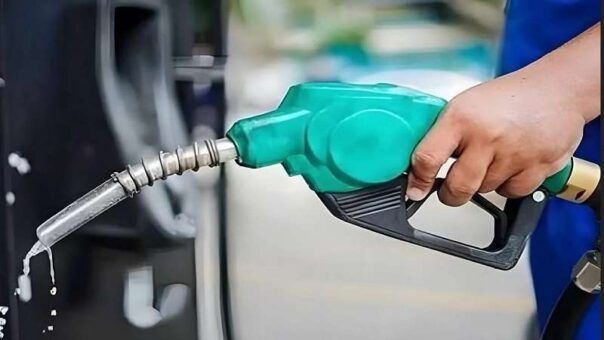Karachi, August 31, 2024 – As international oil prices continue to fall, the citizens of Pakistan are eagerly awaiting a significant reduction in petroleum prices for the first half of September. The government is expected to announce new petroleum prices today, which will be effective from September 1, 2024.
Sources suggest that the price of petrol is likely to decrease by Rs 3.10 per liter, lowering it from Rs 260.96 to Rs 257.86 per liter. In a similar trend, the price of high-speed diesel (HSD) is expected to be reduced by Rs 2.50 per liter, bringing it down from Rs 266.07 to Rs 263.57 per liter. These anticipated reductions are a direct result of the declining global petroleum prices, which have been on a significant downward trajectory in recent weeks.
Breakdown of Proposed Price Changes
• Petrol: Expected to decrease by Rs 3.10 per liter, from Rs 260.96 to Rs 257.86.
• High-Speed Diesel (HSD): Likely to decrease by Rs 2.50 per liter, from Rs 266.07 to Rs 263.57.
• Kerosene Oil: Anticipated to decrease by Rs 1.39 per liter, from Rs 171.77 to Rs 170.38.
• Light Diesel Oil (LDO): Expected to decrease by Rs 1.96 per liter, from Rs 157.02 to Rs 155.06.
These reductions are mainly attributed to a recent decline in international crude oil prices. Over the past two weeks, crude oil prices have dropped by approximately $2 to $2.30 per barrel. The average price of petrol has decreased from $82.50 to $80.40 per barrel, while HSD has fallen from $90.30 to $88 per barrel. Currently, the premium on petrol stands at $8.47 per liter, and the premium on HSD is $5 per liter.
The government’s strategy of aligning domestic fuel prices with global market trends ensures that any reduction in international prices is promptly passed on to consumers. This approach is part of a broader policy aimed at providing economic relief to the general public during challenging economic times.
If the proposed price cuts are approved, they will offer much-needed relief to consumers and businesses alike, who have been struggling with high fuel costs amidst a broader economic slowdown. Lower petroleum prices could significantly reduce transportation costs and help curb inflationary pressures that have been affecting both the cost of living for citizens and operating expenses for businesses.
However, the final decision on these price adjustments will be based on a thorough assessment of various economic factors, including the impact on government revenue. Authorities are currently finalizing the exact figures, taking into account the current petroleum levy and general sales tax rates. This careful deliberation underscores the government’s commitment to balancing economic relief with fiscal responsibility.
While the anticipated price cuts are likely to be welcomed by the public, government officials are also mindful of the potential impact on revenue collection. Although a reduction in fuel prices could potentially decrease the government’s tax income, it is expected that the economic boost from lower costs could offset some of the immediate revenue losses.
As the government prepares to announce the new prices, the public and industry stakeholders are hopeful that these measures will provide some stability to the market and alleviate the financial burden on citizens across the country. This anticipated move is seen as a positive step towards easing the economic pressures currently faced by many Pakistanis, providing a much-needed respite amid ongoing economic challenges.
